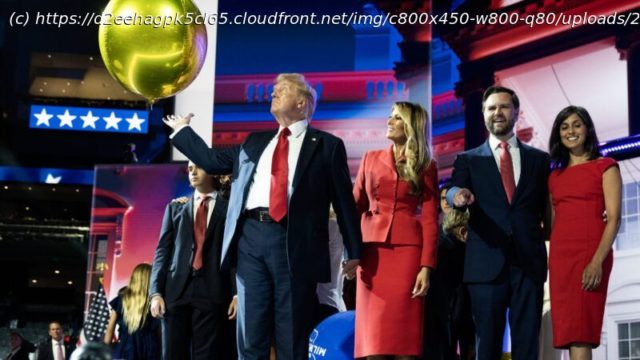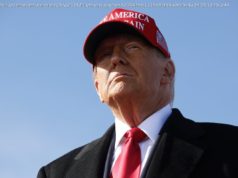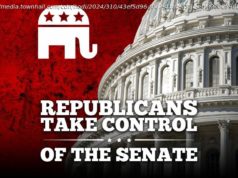When measured as a share of the U.S. economy, the federal government is now larger than it has ever been outside of crises like World War II and the COVID-19 pandemic.
Presidential nominee Donald Trump delivered the longest acceptance speech in recent history on Thursday night at the Republican National Convention (RNC).
But nowhere in that 90-minute address did Trump find time to call for eliminating or abolishing a single, specific government program. He talked about raising tariffs and cutting taxes, aired grievances and attacked immigrants, but gave no thought to shrinking the size or scope of government. If Trump wanted to convince libertarians to vote for him—something he has explicitly tried to do during this campaign—then Thursday night’s speech was probably not the best way to go about it.
In fairness, convention speeches by presidential nominees are not often the venue for long and detailed discussions of cutting government. Nights like Thursday are always more about what the government can do for you, not what you could do without the government.
Still, Republicans used to at least nod toward their small government credentials. In 2012, Mitt Romney used his acceptance speech to vow a repeal of Obamacare. In 2016, Trump spoke at some length about the need to roll back regulations, which he called «one of the greatest job-killers of all», specifically pointing out rules that hindered energy production.
Even if it’s wrong to expect much specificity from the presidential nominees at the convention, the lack of talk about shrinking government extended to the rest of the RNC too.
Домой
United States
USA — Financial Republicans Don't Even Pretend To Want To Cut Government Anymore






